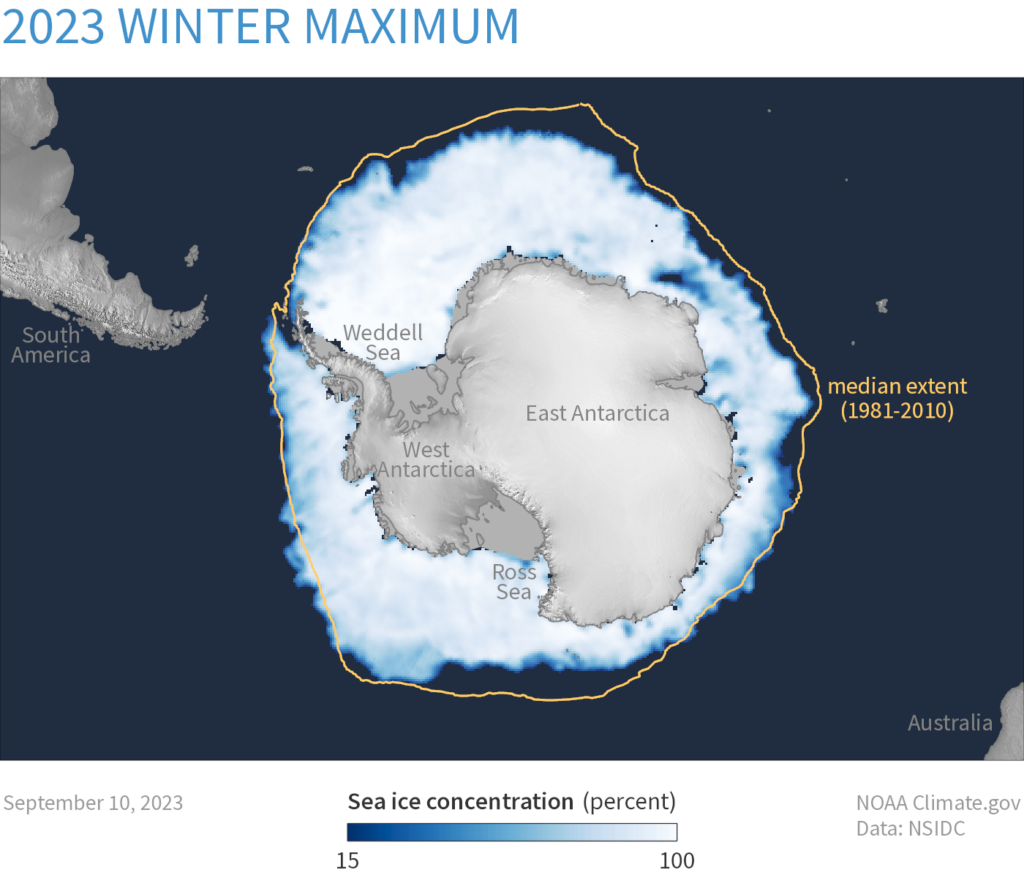AGU News
Register for Astrobiology Science Conference 2024. It’ll be out of this world!
Join us in Providence, Rhode Island from 5-10 May for #AbSciCon24. The international astrobiology community will share new research investigating life’s potential, from Earth’s extreme environments and distant past to our solar system’s icy moons and exoplanets. To register, email [email protected] with your credentials. [media advisory][press credentialing requirements][AbSciCon24 scientific program]
Featured Research
Hot oceans and strong winds shrank 2023 Antarctic sea ice
The 2023 Antarctic sea ice extent maximum on 7 September was the smallest observed since the satellite era began: about 17 million square kilometers. This was due to warm upper ocean water and strong winds that impeded sea ice development, a new study finds. [Geophysical Research Letters research]
Great Basin snowfall can’t make up for aridification
The Great Basin in the western United States has been losing groundwater increasingly quickly. Even during heavy snowfall years, when snowmelt can replenish some groundwater, total water storage has been dropping. This is partly due to increased evaporation rates as temperatures warm, a new study finds. [Geophysical Research Letters research]
Cutting emissions could reverse European drought trends
New models of a world in which greenhouse gas concentrations and temperatures are no longer rising find that the decline in summer rainfall in Europe, which has persisted in recent years, could be reversed. The pattern is strongest for northern Europe and the Mediterranean. [Geophysical Research Letters research]
Marine heatwave helped create mega-hail event in Spain
In August 2022, hailstones up to 12 centimeters in diameter struck Spain. New modeling shows that a marine heatwave, caused by anthropogenic climate change, led to conditions favorable for the formation of such an extreme hailstorm. [Geophysical Research Letters research]
Simulation suggests “great Caribbean quake” 600 years ago
Geologists have debated what caused flooding that left corals mysteriously stranded inland on the British Virgin Islands 600 years ago. New simulations explore two possible culprits: a large hurricane and a tsunami triggered by a strong earthquake north of Puerto Rico. A tsunami fits their models better. [JGR Solid Earth research]
Curiosity Rover could be stirring up methane from Martian soils
The Mars Curiosity Rover’s roving and drilling may be breaking up the hardened, salty soils that seal methane in the ground. That could explain the brief, localized methane spikes the rover’s instruments have been detecting. [JGR Planets research][Eos editor’s highlight]
#
